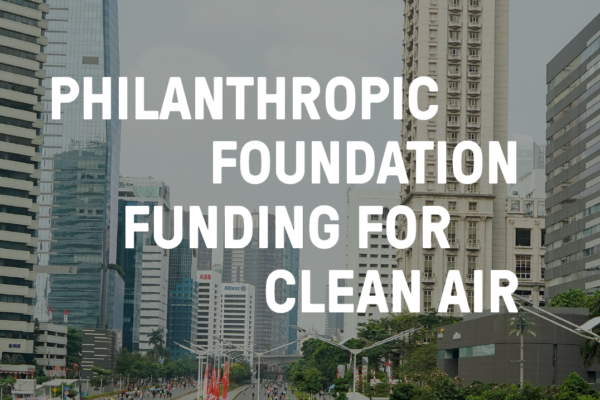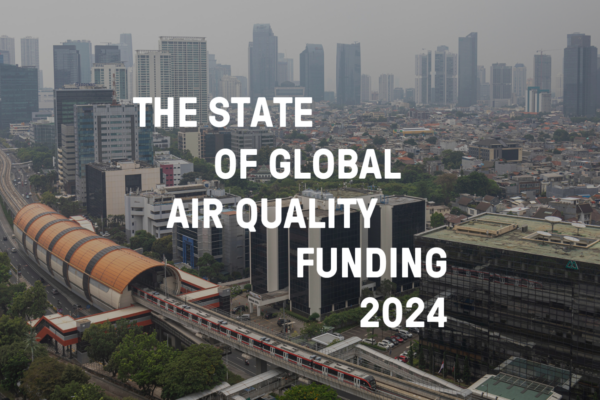Governments worldwide allocated almost $700 million (15%) more overseas development funding to fossil fuel projects in 2022 than to projects aimed at reducing outdoor air pollution, according to our report, The State of Global Air Quality Funding 2024.
This marks a sharp reversal from 2021 when international aid from governments, bilateral development agencies, and multilateral development banks for clean air initiatives briefly overtook fossil fuel funding. The latest data shows fossil fuel funding has more than quadrupled, rising from $1.2 billion to $5.4 billion in just one year.
Fossil fuel emissions are responsible for over half of the 8.3 million annual deaths caused by outdoor air pollution globally. Despite this, governments continue to channel aid into fossil fuel prolonging and expansion projects, while clean air initiatives receive less than 1% of available funding.
The Clean Air Fund is warning that the problem is compounded by the structure of this aid, with 92% of funding towards air quality initiatives provided as loans, while only 6% is allocated as grants. This loan-heavy model would place an unsustainable burden on low-income, heavily polluted countries that cannot afford to take on additional debt. This stands in stark contrast with other areas of international development funding such as healthcare and education. On average, 63% of official development assistance is funded as grants.
This shocking increase in aid funding to fossil fuels is a wake-up call. The world cannot continue down this path of propping up polluting practices at the expense of global health and climate stability. We need to see a drastic shift towards supporting clean air initiatives for communities who need it most.
Jane Burston, CEO of Clean Air Fund
Toxic air carries immense economic costs, with the combined impact of premature deaths, lost productivity, and healthcare expenses for diseases like cancer, heart disease, and dementia running into trillions of dollars each year. The World Bank estimates this “dirty air tax” drains around 6.1% of global annual GDP.
These findings come as global attention shifts to the upcoming COP29 discussions on the New Collective Quantified Goal (NCQG) for climate finance, where leaders will reassess international funding strategies. The Clean Air Fund is urging a significant increase in global air quality funding, with an emphasis on providing grants instead of loans to ensure equitable support for vulnerable countries.
In a comment in the report, Adalberto Maluf, National Secretary of Urban Environment and Environmental Quality in Brazil, said: “Even as countries pledge to reduce their emissions, increase their climate change ambitions and transition away from fossil fuels, the figures tell a different story. International public funding does not come close to meeting the scale of the challenge or unlocking the significant opportunity of investment in air quality. What funding exists often does not reach the most affected geographies, communities and vulnerable people. It doesn’t have to be this way.”
Brazil as G20 chair and the incoming COP Presidency is proud to be championing another vision for the planet: one where humans and nature co-exist in harmony, where we respect the environment we are blessed with, and where economic prosperity doesn’t come at the expense of our health and wellbeing.
Adalberto Maluf, National Secretary of Urban Environment and Environmental Quality in Brazil
The Clean Air Fund’s annual The State of Global Air Quality Funding report, produced in partnership with the Climate Policy Initiative, is the only comprehensive analysis of international development finance flows aimed at improving outdoor air quality. The report builds transparency and serves as a crucial evidence base for policymakers, funders, and campaigners working to address the global air quality crisis.
Barbara Buchner, Global Managing Director of Climate Policy Initiative, which co-authored the report, said: “Air pollution and climate change are driven by the same root causes, and share the same solutions. Directing limited public funds towards fossil fuel projects and subsidies is locking in harmful emissions for decades to come. International aid and climate finance should prioritise initiatives that improve air quality, delivering significant health, economic, and climate benefits.”
More about funding

